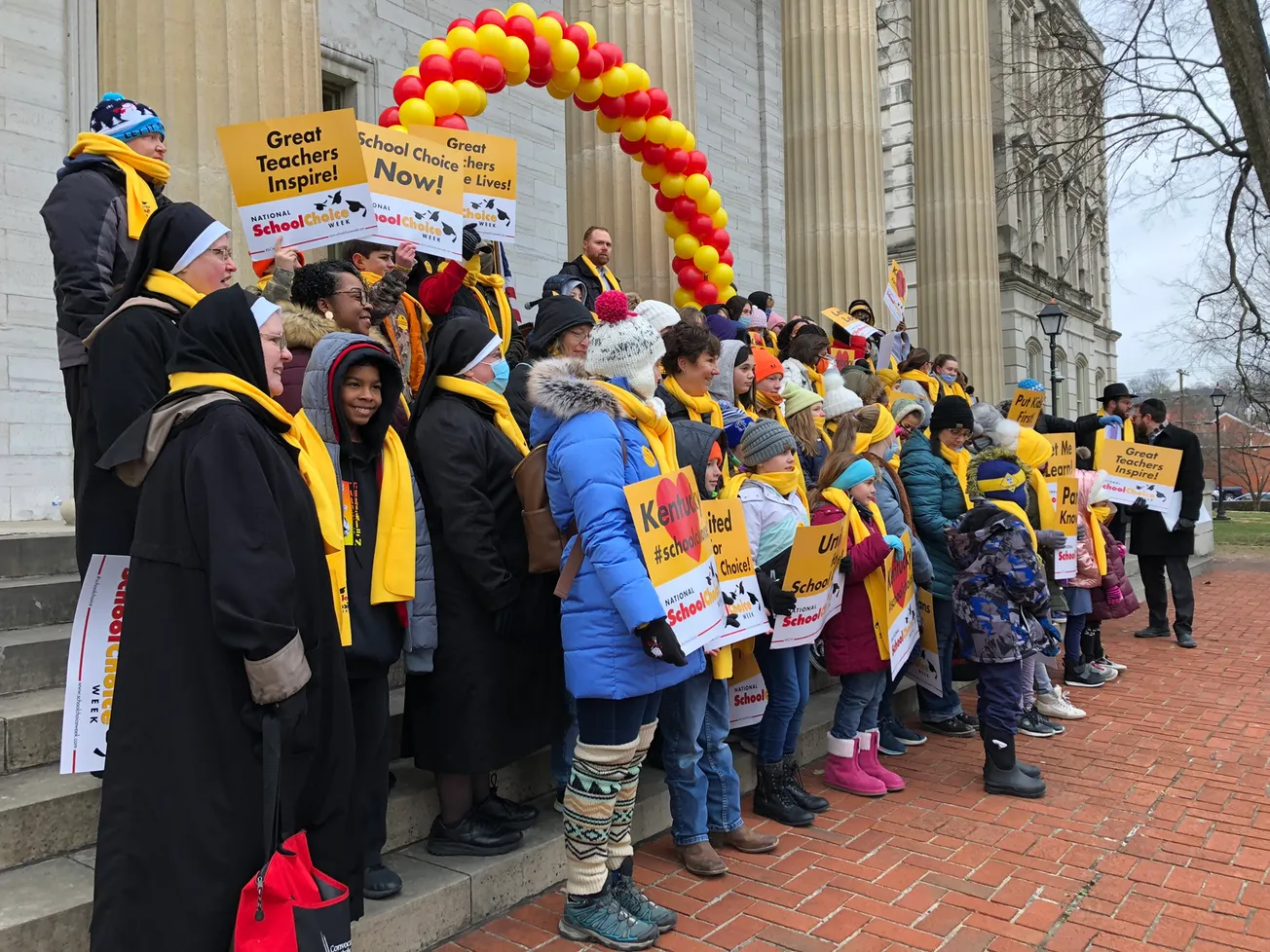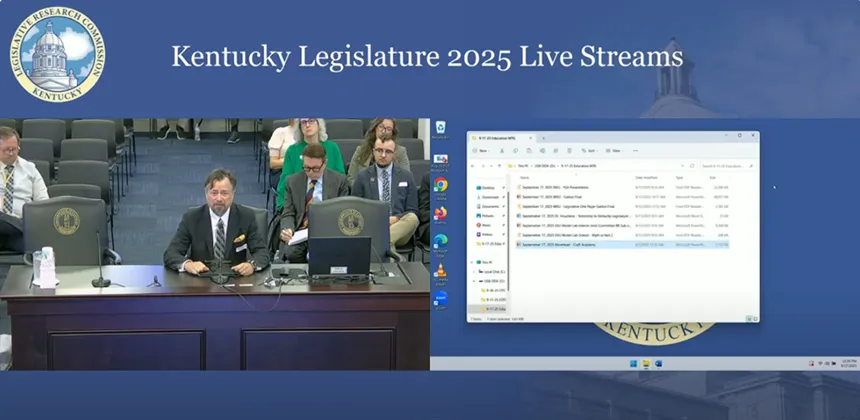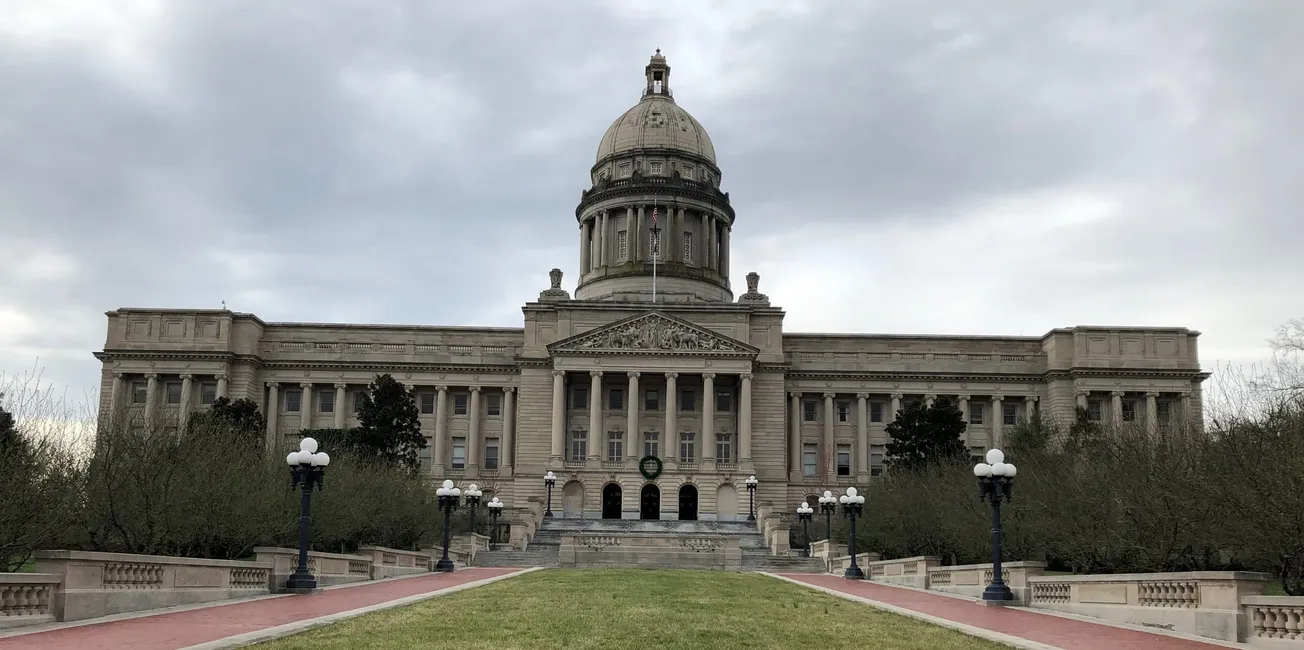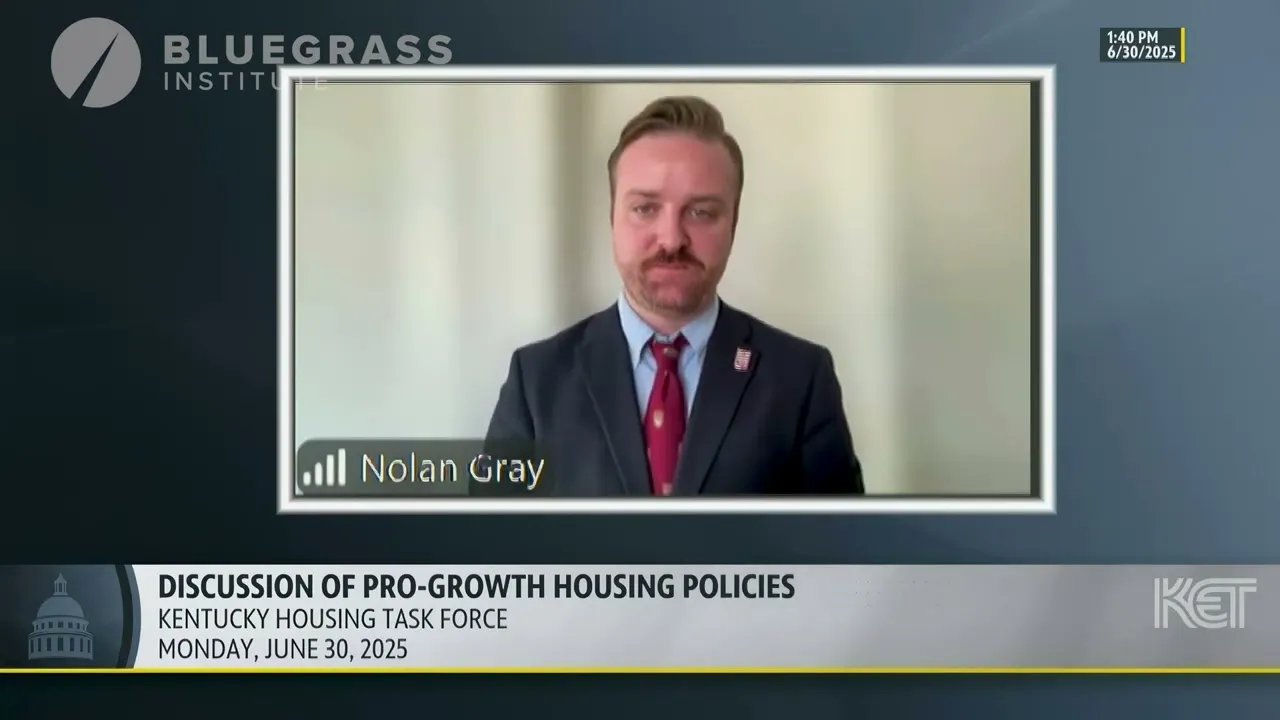Table of Contents
"Universities have long recognized that different students thrive in different educational environments. That's why, in states with charter school laws, universities are often among the most trusted charter school authorizers. We understand that educational quality isn't one-size-fits-all."
Remarks delivered to the Kentucky General Assembly's Budget Review Subcommittee on Education on September 17, 2025.
Thank you, Senator Rawlings, Rep. Riley, Rep. Banta, and members of the subcommittee. It’s an honor to speak to you today about K12 innovation in Kentucky.
State's university-K-12 choice programs 'working brilliantly'
As you've heard today from my colleagues, Kentucky's universities have a remarkable track record of educational innovation through programs like the Model Laboratory School at EKU, the Young Scholars Academy at NKU, the Craft Academy at Morehead State and the Gatton Academy at Western Kentucky University.
While I’m not here today to speak on behalf of WKU, my day job is as a professor, there, and I've had the privilege of working closely with the Gatton Academy, mentoring students and participating in the interview process for prospective students. These experiences have shown me firsthand what happens when we match exceptional students with educational environments designed to meet their unique needs.
What you've heard described today are prime examples of educational choice working brilliantly. Each of these programs exists because traditional high schools – no matter how well-intentioned – simply cannot provide the specialized resources, advanced coursework and research opportunities that these academically gifted students require.
As I learned when I helped interview applicants for the Gatton Academy, these students don't lack motivation or intelligence – far from it. They lack access to educational environments that can challenge and nurture their exceptional abilities. Their assigned public schools, through no fault of their own, often cannot offer the advanced mathematics, laboratory research or university-level coursework these students need to reach their potential.
This isn't a new concept for higher education. Universities have long recognized that different students thrive in different educational environments. That's why, in states with charter school laws, universities are often among the most trusted charter school authorizers. We understand that educational quality isn't one-size-fits-all.
Universities embrace diversity in educational approaches because we see the results: students who have been able to access learning environments tailored to their needs arrive at our institutions better prepared, more engaged and more successful.
Expanding educational opportunities
But here's the critical point: if specialized educational environments can transform outcomes for academically gifted students, why shouldn't we extend similar opportunities to all students who need something different from their assigned school?
The student struggling in a large, traditional classroom might thrive in a smaller, more individualized setting. The student passionate about the arts might flourish in a school with robust creative programming. The student needing more hands-on, vocational preparation might succeed in an environment emphasizing practical skills.
Parents know their children best. They understand their learning needs, their interests, their challenges, and their dreams. Just as the parents of our Gatton Academy students recognized their children needed something beyond what their local high school could provide, all parents deserve the opportunity to seek educational environments where their children can succeed.
Federal program leverages private funds
Which brings me to an unprecedented opportunity for Kentucky families. The recently passed federal budget reconciliation package includes a provision that could finally give Kentucky students the same educational choices available to children in 48 other states.
The One Big Beautiful Bill Act establishes a federal tax credit for private donations to scholarship programs. These scholarships help eligible students access various education services, including private school tuition. Twenty-one states already operate similar programs successfully.
This approach is particularly appealing because it uses private dollars, not public funds. Just as the federal government encourages charitable giving through tax deductions, this program incentivizes private support for educational opportunity.
But here's the crucial detail: states must opt in to allow their residents to participate. The Kentucky legislature has the opportunity – and I would argue the obligation – to make our students eligible for this program.
Kentucky needs school choice
For too long, Kentucky has been one of the few states systematically denying students meaningful school choice options. We've seen the results of educational innovation right here in our university partnerships. We know these approaches work.
Last year's failed constitutional amendment shouldn't be an excuse to deny Kentucky families this opportunity. That amendment was admittedly complex and confusing. But this federal program is different – it's ready to implement, it's been proven effective in other states, and it doesn't require Kentucky taxpayers to fund it.
Let me be clear about what's at stake. We have tens of thousands of students in chronically underperforming schools who desperately need alternatives. These aren't just statistics – they're individual children with unique talents, interests, and potential.
As my colleagues at the Cato Institute have noted, "Education choices should not be based on majority rule. It is simply wrong to compel families to pay for, and de facto attend, government schools that they find subpar, or even morally unacceptable, even if the majority is okay with them."
Proven innovations already here, working
The programs you've heard about today – Gatton, Craft, Young Scholars, and the Model Lab School – prove that Kentucky understands the power of educational innovation when students can access learning environments designed for their needs.
The federal scholarship tax credit program represents an opportunity to extend this same principle to all Kentucky families, not just those lucky enough to have academically gifted children or the financial means to exercise choice on their own.
Lawmakers urged to act
Kentucky students deserve the same opportunities available to children in states all around us. I urge this legislature to act when you reconvene next year to opt Kentucky into this transformative federal program. Our students' futures depend on it, and I’m grateful for you to consider it.
Remarks delivered to the Kentucky General Assembly's Budget Review Subcommittee on Education on September 17, 2025.








